‘My life here would be perfect if it weren’t for the settlement near my home and all the anxiety it creates. I can’t do what I want, and I can’t cultivate the land I need for my family’s survival.’
Huda, Birin
At 6:30am on a Friday morning, the sun quickly rises over the village of Birin. Birin lies in the South Hebron Hills approximately ten miles from the large city of Hebron in the occupied West Bank. Huda, who now lives alone in a house at the top of one of the hills in the village, raises and fattens small lambs and grows fodder for them with occasional help from her adult son. She greets us with a pot of hot sweet tea and we gather around a small fire in the early morning sunshine.
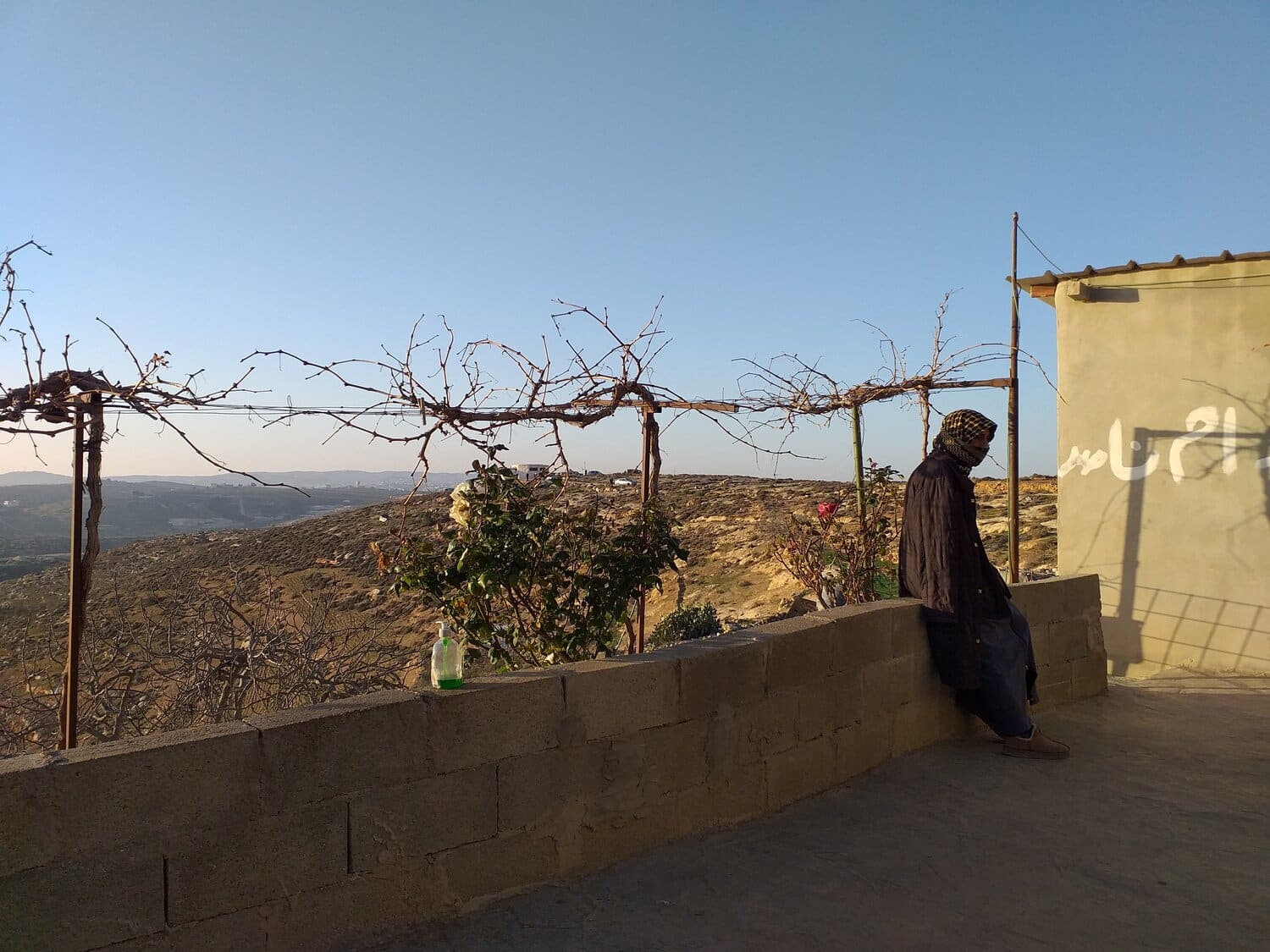
Huda, Birin
Huda and the other villagers of Birin experience regular harassment from settlers who live close by in the settlement of Pnei Hever. Huda’s home is also a few metres walk from an Israeli memorial, and this proximity is part of the reason that Huda’s anxiety is especially high on Fridays.
In 2003, the Israeli authorities shot and killed two settlers in Birin, who they mistook for Palestinians. A memorial to mark the incident has been erected on Palestinian land, and has become a focal point for settlers on Friday mornings, where prayers are said and some form of construction and planting activity takes place. On our Friday visits we regularly witness 6-12 cars with multiple occupants attending the memorial. An Israeli military jeep also arrives to escort them.
Settlers have used their visit as an opportunity to enter Huda’s land, verbally abuse her and her family and damage her property. In January, four young settlers also broke the lock to her water cistern and swam in the water. Afterwards they entered the cave where her donkeys are sheltered.
Settlers have left rubbish and building debris on the hillside between Huda’s home and the memorial. Huda is now too frightened to go to this side of the valley and other villagers also tend to avoid it through fear of harassment. Villagers also have suspicions that a new settler outpost is being built behind the memorial.
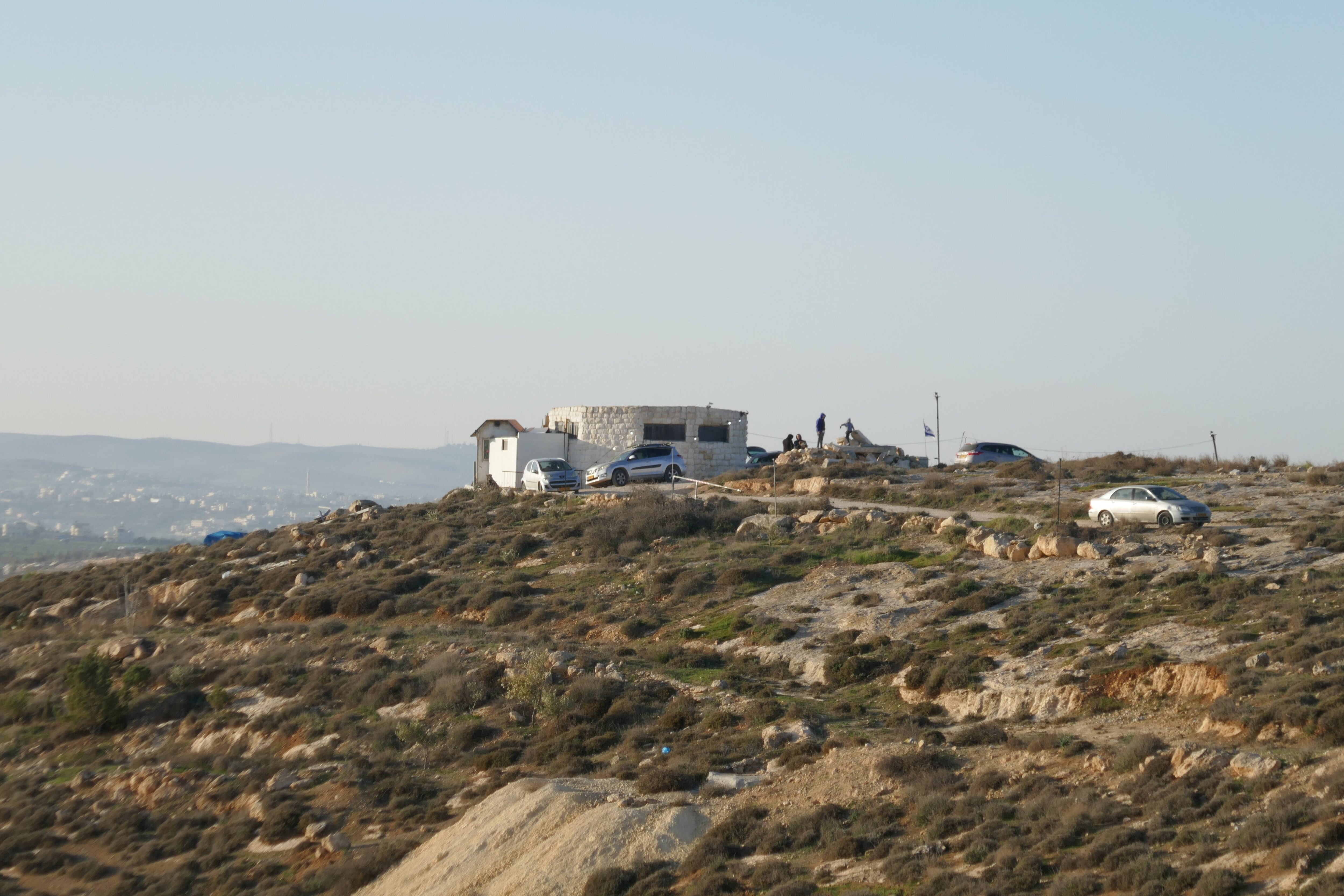
Settler memorial at Birin
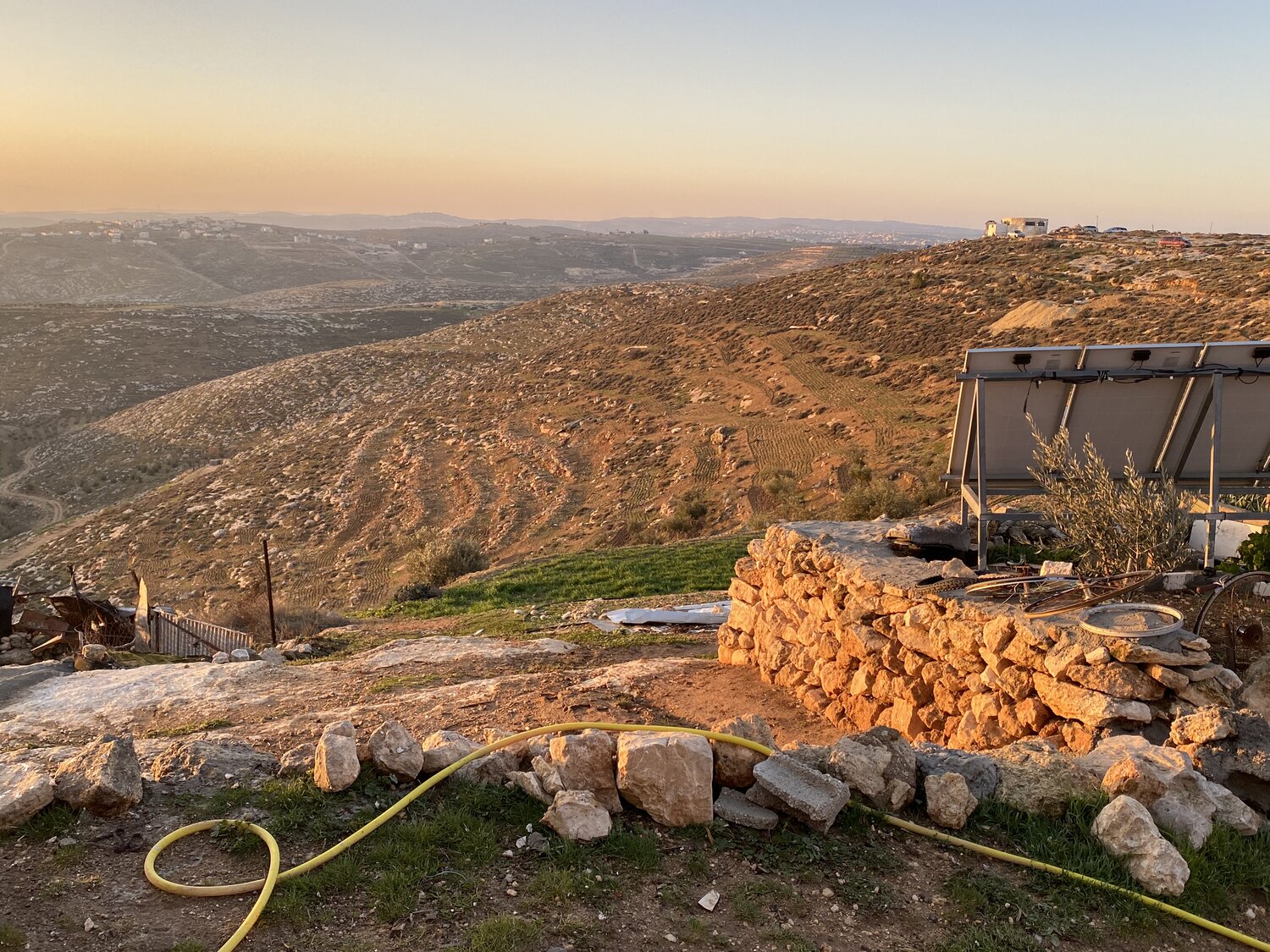
View of settler memorial and settlement in the distance
Outposts are settlements established by Israeli citizens on Palestinian land, usually for ideological reasons and without the consent of even the Israeli authorities. However, they receive military protection and financial assistance from the Israeli government and are connected to Israel’s main electricity and water supply, and access roads. In recent years, the Israeli Ministry of Agriculture has given public funds of 2.6 million NIS (approximately £600,000) to Hashomer Yosh, an organisation that send volunteers to work on agricultural outposts.
‘Most of these outposts are settled by one young family, consisting of just a few individuals and volunteers. By building structures, grazing flocks in vast areas, taking over water resources and often perpetrating violence against the Palestinian residents, the settlers are able to take control of large swaths of land.’
Outposts can be quickly established with low set–up costs. One family in a caravan with a small flock of sheep can have a significant impact over a large area of land. We have witnessed that these outposts often occupy hilltop positions, overlooking pastureland. By herding their sheep over pastureland belonging to Palestinian farmers and denying them access to their own land, farmers lose their means to feed their livestock economically and sustainably. Given the cost of purchasing fodder, shepherding becomes economically unviable and Palestinian farmers lose their livelihood.
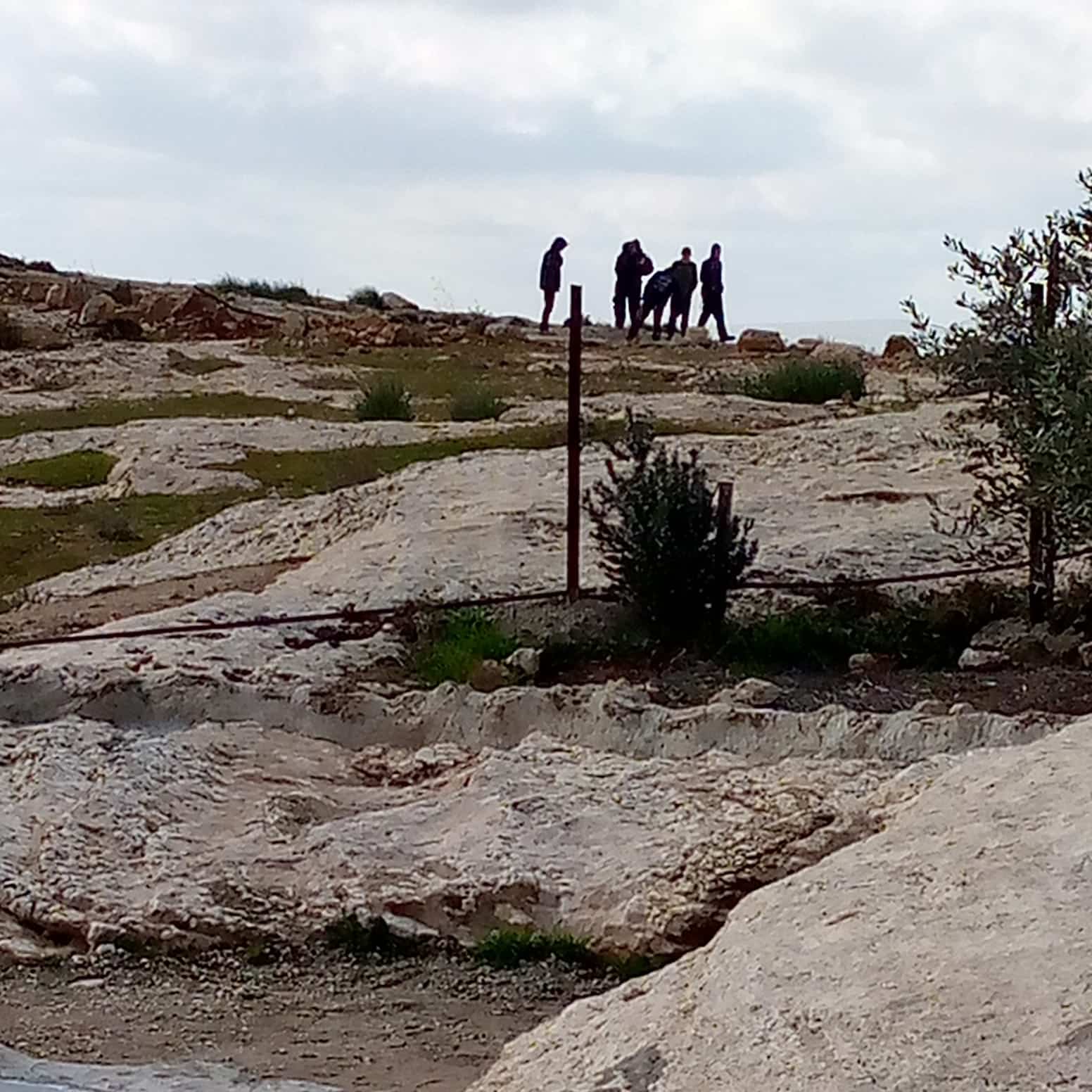
Settlers approaching the village of Birin
Huda shares her worries about the price of fodder for her sheep and lambs as she waits for her barley and wheat crops to grow. Palestinians face the same economic pressures as the rest of the world when animal food prices increase. In addition, the expansion of settlements reduces fodder and other crops and the ability to roam pastures as in the past. During our time here, we have also witnessed many incidents of settlers encouraging their sheep to enter Palestinian land and eat the young crops.
All the Palestinian farming communities we have visited experience high levels of violence from settlements and settler outposts, which is seldom challenged by the Israeli authorities. We have witnessed trespass by settlers, intimidation with the use of quad bikes to scare flocks and the taunting of farmers and their families. When making a police complaint Palestinian farmers are often made to wait for hours outside police stations before being able to register their complaint. Where the Israeli authorities do attend the scene of settler harassment, violence or trespass, they will often simply observe and not intervene. In many cases, the Palestinian farmer is questioned or arrested rather than any action being taken against the settler.
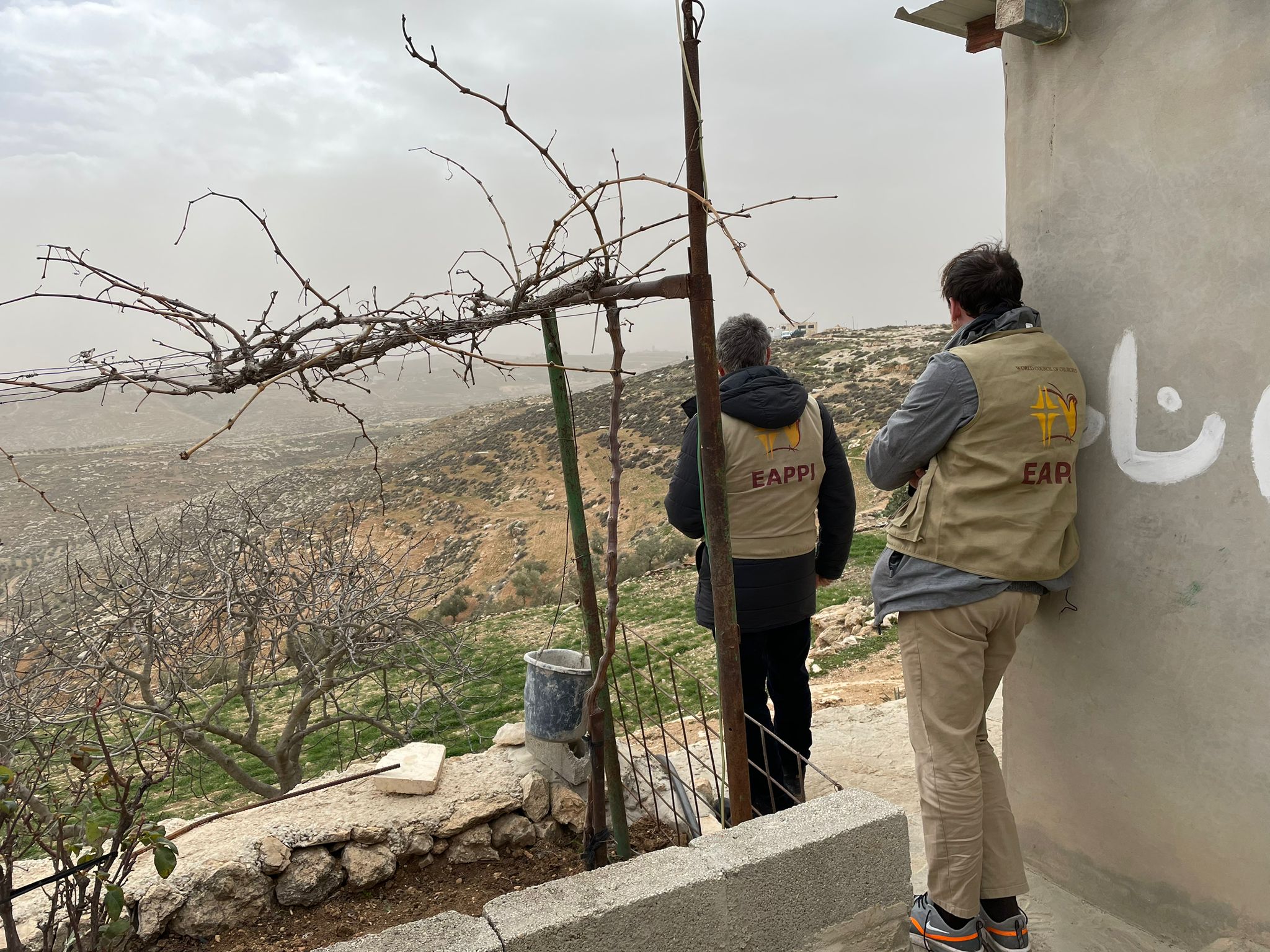
EAs in Birin
Since 1995, Israeli human rights organisation, Yesh Din, has monitored more than 1,500 case files regarding ideologically motivated crimes committed by Israeli civilians against Palestinians. Only 3% of investigations led to convictions. The low conviction rate sends the message that the law enforcement system does not consider this type of crime to be a serious issue, and contributes to the perpetrators’ sense of immunity and the recurrence of these acts. Recently I have witnessed farmers sending their family members to stay with relatives in other areas to protect them from violence, and staying on the farms by themselves.
As well as promising to build and develop more settlements across the West Bank, the new Israeli government also recently announced that it will now recognise nine previously illegal outposts as a response to the shooting of two Israelis in East Jerusalem in January 2023.
One of these outposts Avigayil, lies partly within ‘Military Firing Zone 918’ in the Masafer Yatta region of the South Hebron Hills. In May 2022, the Israeli High Court of Justice ruled that the 215 Palestinian households who live in this area can be forcibly removed. Since this ruling, the harassment and intimidation of Palestinians here has been on the increase and the mass forced displacement could happen at any time, despite condemnation by the UN and others.
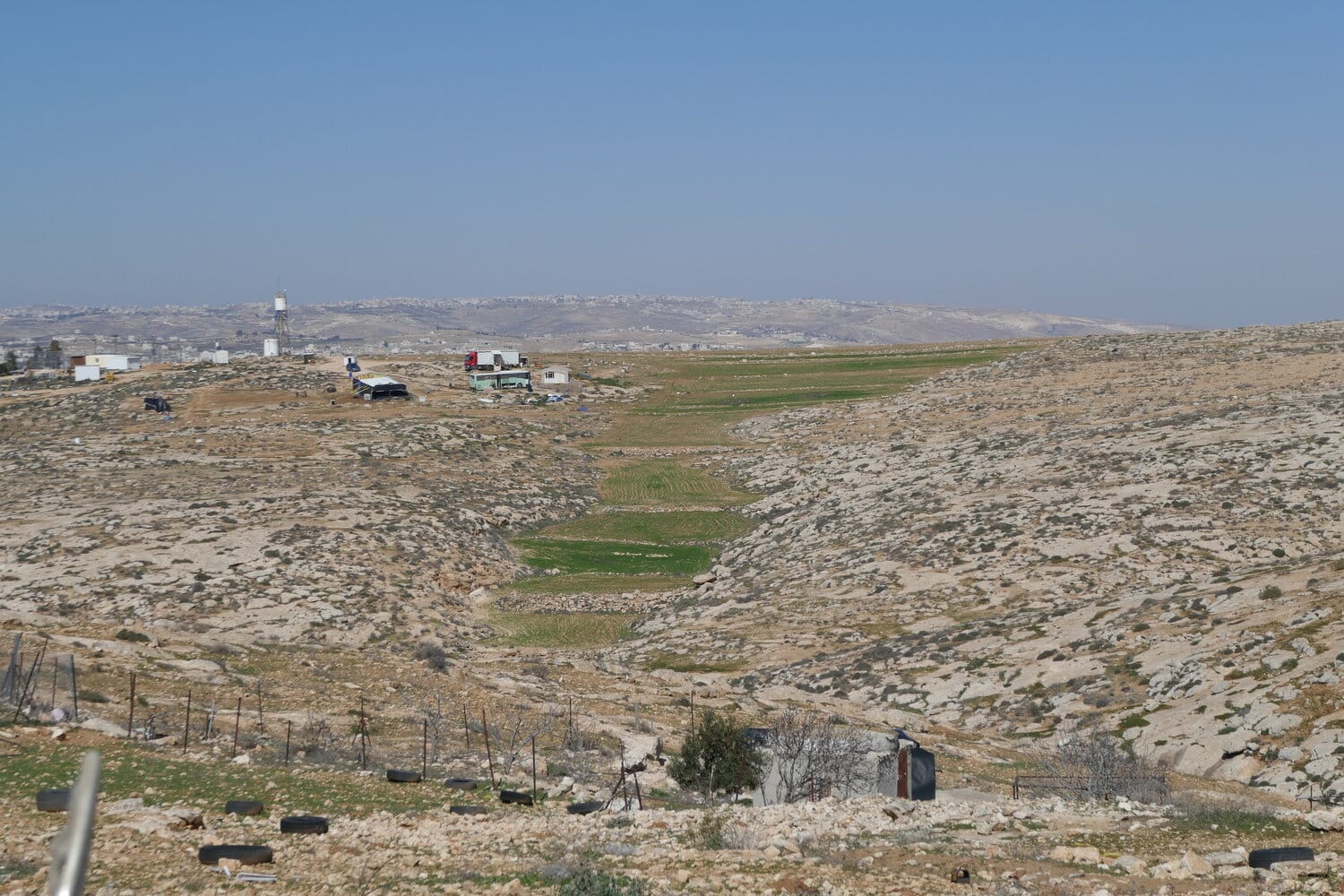
The settler outpost of Avigayill
‘The promotion of thousands of housing units in settlements in addition to the decision to establish nine new settlements, through the authorization and expansion of outposts, jeopardizes the possibility of a future Palestinian State as well as a prize for criminals and violent settlers.’
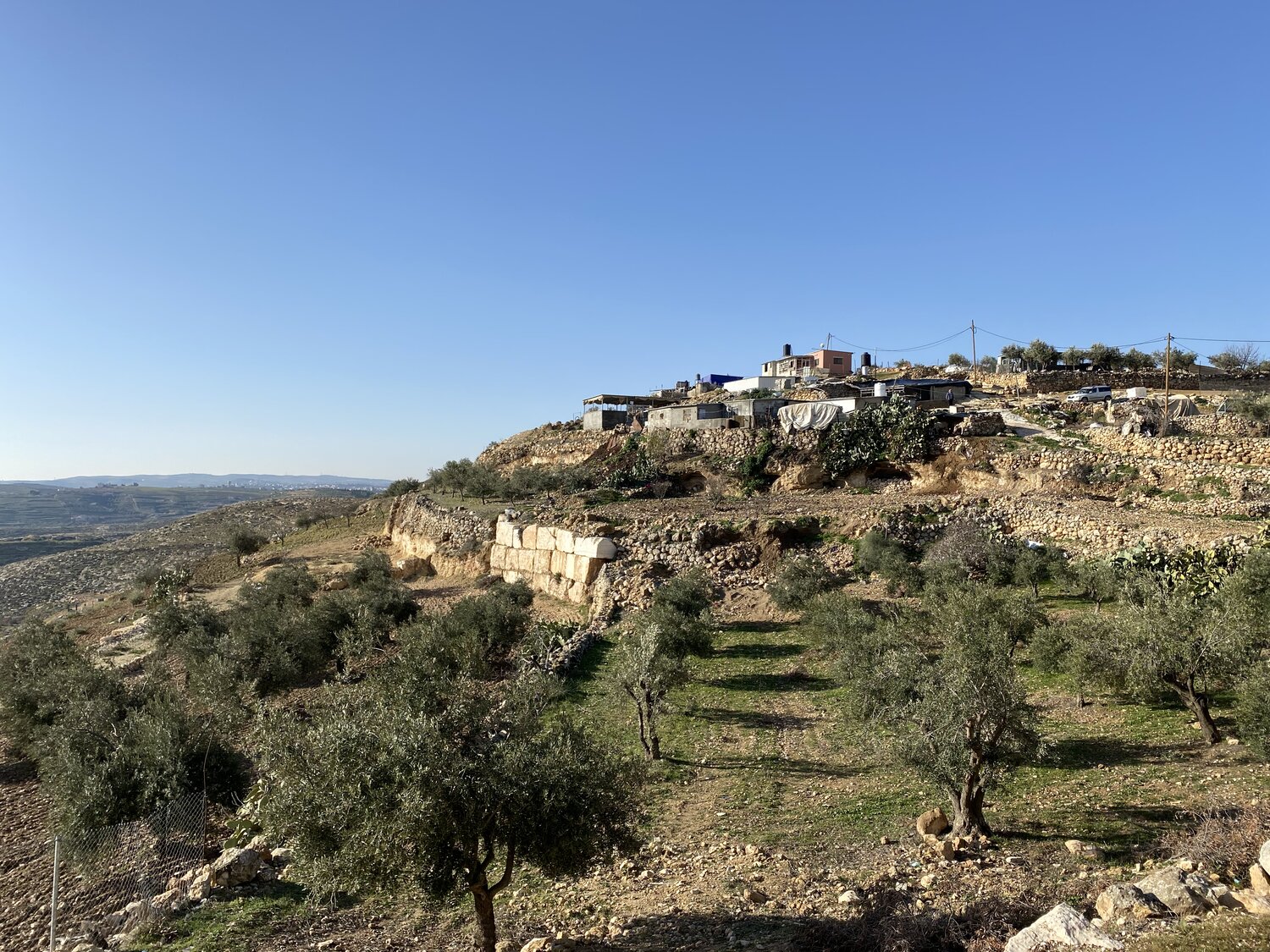
Looking towards Birin from the bottom of the valley
We leave Huda and walk a short distance across the valley to meet the head of the Birin Council. His family have lived in the area for several generations. He estimates that the family has lost around five hundred acres of land in the village as the settlement has been built around it and that land is no longer accessible. He feels that the village suffers additional intimidation because of the settler memorial.
The rest of the family encourages us to share homemade flatbreads and fresh fruit and coffee. In talking of their future, his wife adds;
‘It would be a dream to have no harassment and a peaceful life.’
Take action!
-
Use our quick template letter to send this eyewitness story to your elected representatives and faith leaders and ask them to speak out for the right of Palestinians to access their land and livelihood, and to be protected from all acts of violence, in compliance with international law.
-
Click here to join our urgent #DefendMasaferYatta campaign to stop the forced displacement of over 215 Palestinian households from Military Firing Zone 918.
-
Learn more about how settler outposts threaten the livelihoods of Palestinians by reading this recent report by Israeli human rights organisation, Yesh Din and by following and sharing their work.

